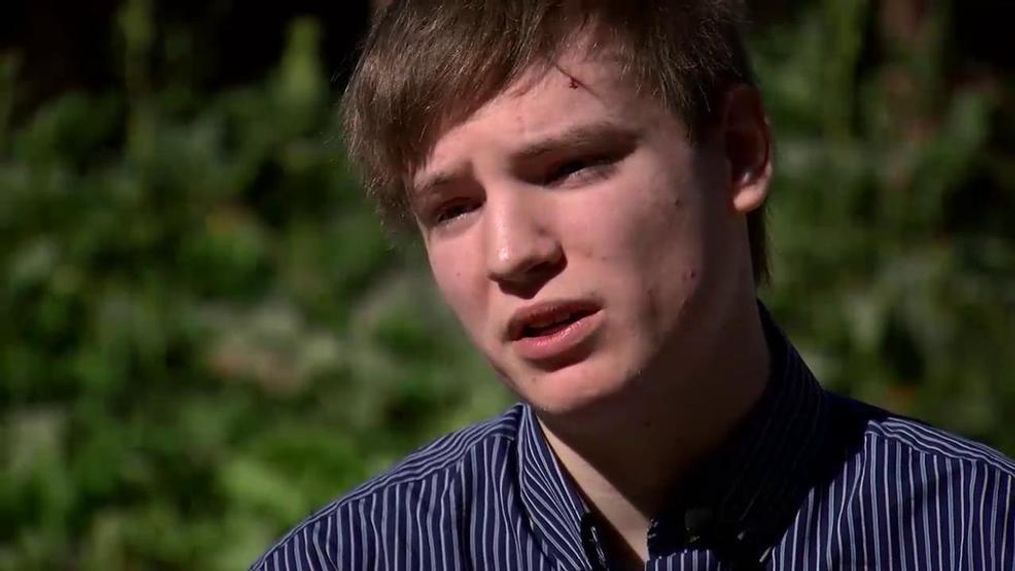'The Good Doctor' raising awareness of issues faced by adults with autism

CHARLESTON, S.C. (WCIV) - "The Good Doctor" is ABC’s newest hit show; it's dominating Monday night ratings. The drama centers around a young surgeon with autism. The main character struggles with communication and social settings.
It's a show 23-year-old Clay Seim can relate to. He's not a doctor but he is an adult with autism spectrum disorder.
"I need people to know that we are still here after high school. A lot of the awareness isn't there anymore but the people are still there,” Seim said.
Seim was in elementary school when his mother realized something wasn't right.
"We noticed some social things were off and that he couldn't handle disappointments as well and more tantrums and that kind of thing,” said Dawn Brazell.
Tests were done and a diagnosis finally came in middle school.
“It was very hard. It was very difficult,” explained Brazell. “I wanted to know what he had so I could better know how to help him and what kind of accommodation to get for him, not as a barrier for him to live his life but as a 'Hey, I have this, so what can I do well and let me move on.'"
One way that Seim copes is through a program called Piece It Together.
It's a wellness lifestyle program at the Medical University of South Carolina for teens and young adults with autism spectrum and/or mild neurodevelopmental disorders.
Seim also works part time. He says having a full-time job causes his symptoms to intensify. The stress is just too much. Fear of the future is another constant concern.
“That is a question that I don't know the answer to and that terrifies me. I have no idea where I am going to be,” Seim said. "I am hoping some of these programs will be a little further along. The housing one is one that I am definitely looking forward to, getting some kind of project here in Charleston that can help house young adults with autism. I don't need everything provided for me. I just need a little more support in that area to be able to live on my own.”
Which is why Seim wants people watching TV shows like "The Good Doctor" and the Netflix original "A-Typical" to be cautious.
“There is a saying that if you have met one person with autism you’ve met one person with autism. You may have an idea of some of the issues that face them, but in reality, it is so varied that you would have to have as many TV shows as there are people out there to truly understand everything."
But even with his hesitancy, he's grateful for the awareness. It's his hope the increased discussion will lead to more critical resources for adults on the spectrum.
“You have small groups of people working and trying to fill these gaps but they are huge. They are gigantic and these people are doing an amazing job but they still need more help,” said Seim.
What is autism?
According to the U.S. Centers for Disease Control and Prevention, "autism spectrum disorders (ASDs) are a group of developmental disabilities that can cause significant social, communication and behavioral challenges. People with ASDs handle information in their brain differently than other people."
ASDs are "spectrum disorders." That means ASDs affect each person in different ways and can range from very mild to severe. People with ASDs share some similar symptoms, such as problems with social interaction. But there are differences in when the symptoms start, how severe they are, and the exact nature of the symptoms.
A diagnosis of ASD now includes several conditions that used to be diagnosed separately: autistic disorder, pervasive developmental disorder not otherwise specified (PDD-NOS), and Asperger syndrome. These conditions are now all called autism spectrum disorder.
Within the next 10 years, 500,000 teens with autism will become adults, according to Advancing Futures for Adults with Autism (AFAA).
To learn more, visit Lowcountry Autism Foundation.
Dr. Frampton Gwynette said, “This is a brand-new challenge that our society is facing. So, I think we have to flip things on its head and remember that support across the lifespan is critical."
Gwynette points to the statistic that 1 in 68 children has autism.
“That is a very significant number. It has been growing in the last two decades,” he explained. "What happens is they have a lot of services when they are young and then as they age the services become less and less, so when they are out of high school it’s just like a canyon."
On Feb. 9, 2018, Gwynette will help lead the Power to the Parent Conference. The goal is to support individuals with autism from childhood to adulthood. Keep up to date with event details by clicking HERE.
